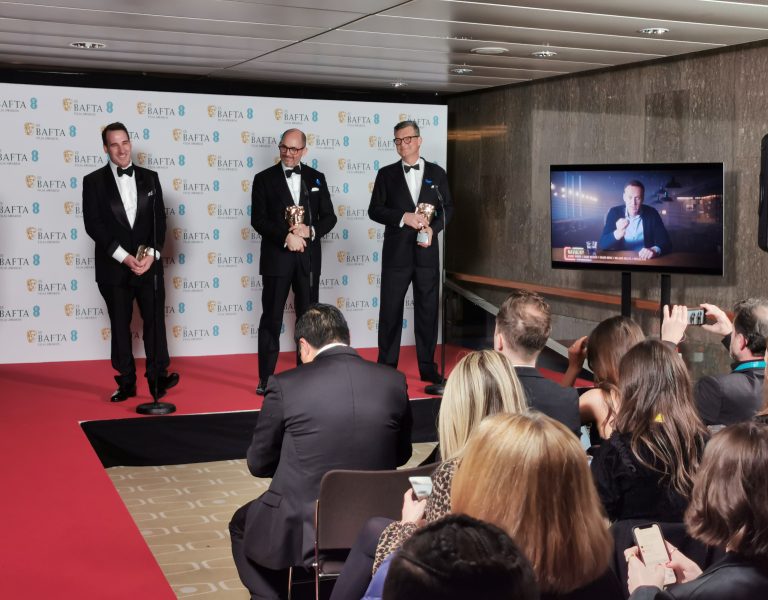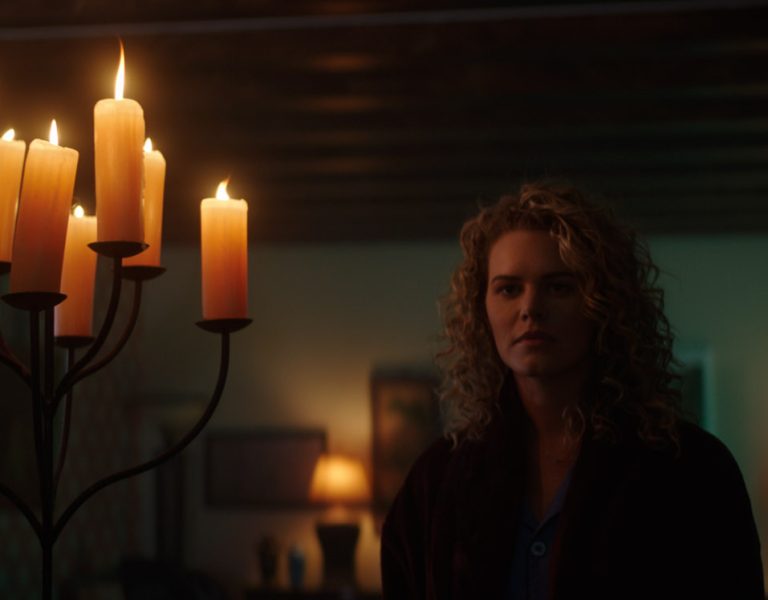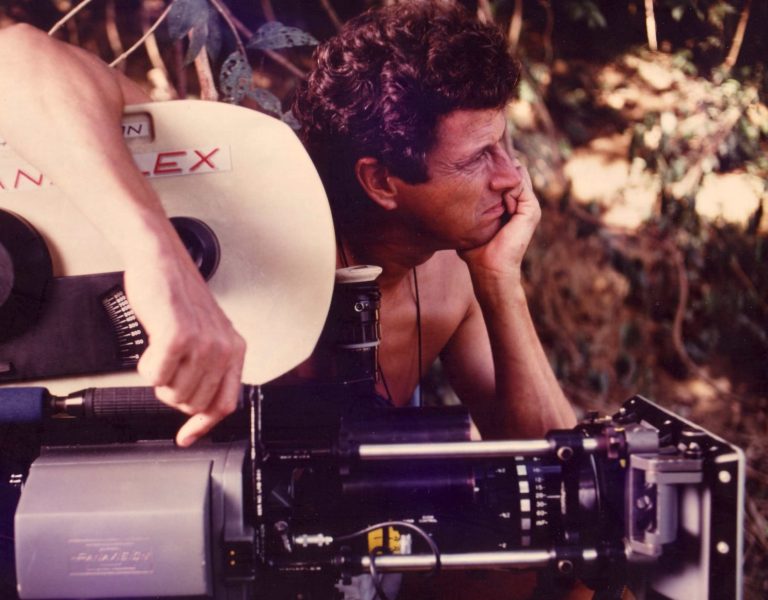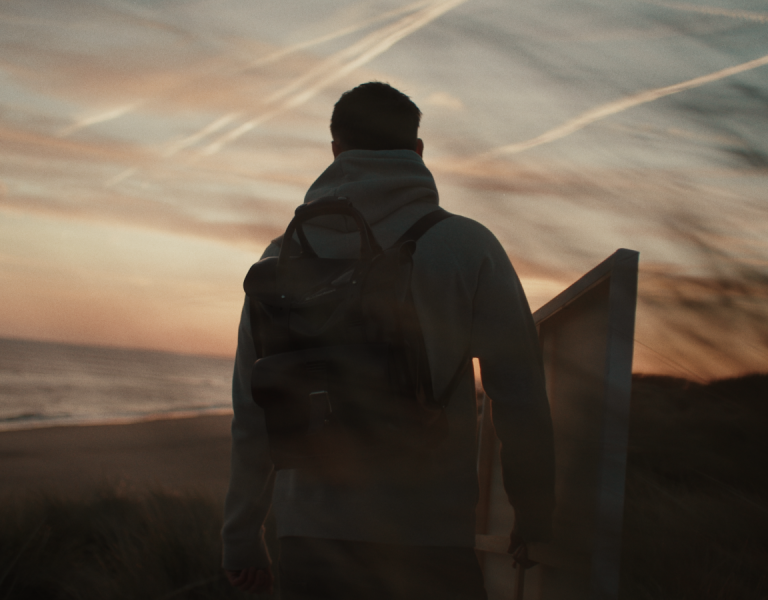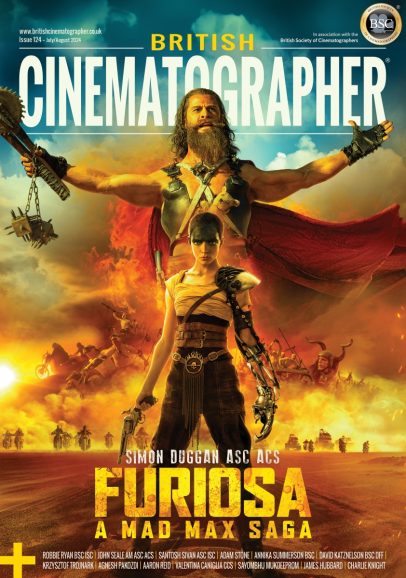CELEBRATING CELLULOID
It was a successful BAFTA Awards for the Oppenheimer crew and cast who took away seven awards, with Poor Things winning five prizes and The Zone of Interest three. British Cinematographer was at the backstage press conference to hear from many of the winners fresh from their victories.
When accepting the Best Cinematography BAFTA award for his work on Oppenheimer, Hoyte van Hoytema ASC NSC FSF acknowledged what he considers a key ingredient in the film’s success. “Celluloid is alive and kicking,” he said. “Four out of five nominated films [in the Cinematography category] were shot on celluloid and it proves that film is resilient and wanted more by audiences than ever.”
Christopher Nolan’s Oppenheimer was triumphant in seven BAFTA categories: Director (a first Director BAFTA win for Nolan), Film; Leading Actor (Cillian Murphy); Supporting Actor (Robert Downey Jr); Editing (Jennifer Lame), and Original Score (Ludwig Göransson); to add to the Cinematography award.
Hoytema commented further on the significance of the number of nominated films having been shot on film when British Cinematographer spoke to him backstage at the winners press conference. On the power of shooting on film as well as the importance of capturing Oppenheimer on large-format film stock, he stated that the way he sees “the world is best represented by the way celluloid sees the world… When at some point there was a slight threat that film was about to disappear I couldn’t necessarily find myself in digital technology as I found myself in film.
“There’s still not a format that in such a beautifully naturalistic way reproduces light, dynamics and colours as film does… When you shoot on large format you’re capable of shooting in such a high quality that is still not possible with digital technology, so for that you need film.”
On working with Nolan, with whom he has collaborated on four films, Hoytema continued, “When starting the first film, I was scared and didn’t know what was about to happen to me, but gradually we got to know each other better and started becoming more courageous. We’ve travelled all over the world, inventing new stuff, making crazy movies and finally we did Oppenheimer. I say finally, but I hope this is halfway through our journey.”
When the filmmakers are scouting or on a film set, they’re “stripped of all the glamour and it’s down and dirty, up to our waste in mud or water. It’s about craft and getting things done. I love that and I’m very much about reacting to the elements or whatever the earth or the climate brings us.”
He highlighted making close-ups in Oppenheimer consecutively interesting as difficult “because with action scenes you can bring out the big guns, but to shoot emotions and faces for three hours and still have enough power in your last close-up is the biggest challenge. Our job is also not to make things comfortable, our job is to figure out what the best way is to tell a specific story and I don’t think that is achieved by making it easy on yourself.”
At the winners’ press conference, British Cinematographer asked Nolan why he felt his collaboration with Hoytema was so successful. “I love that side of things and I love what he does. He’s the best cinematographer working today,” he replied with a smile. “He’s also a lovely person and he’s wonderful to work with which lets us really explore things and have fun.”
Poor Things took home five BAFTAs on the night: Leading Actress (Emma Stone); Costume (Holly Waddington), Make Up & Hair (Nadia Stacey, Mark Coulier, and Josh Weston); Production Design (Shona Heath, James Price, and Zsuzsa Mihalek); and Special Visual Effects (Tim Barter, Simon Hughes, Dean Koonjul, and Jane Paton).
For Poor Things production designer Heath collaborating with Poor Things director Yorgos Lanthimos was a joy because “he listens and he wants a lot of ideas and creativity.” Fellow production designer Price agreed, adding “he takes a long time to choose his HODs and once he’s hired you as an artisan he wants to see what you’re going to bring.”
We asked Poor Things costume designer Waddington what inspired the distinctive colour palette. “I had an instinct to use a lot of yellow for Bella (Emma Stone) and I liked the idea of the palette being connected to the colours you get in a human body on the inside for the beginning of the film. Early on I described colours to Yorgos and he said, ‘I think you like the colours of rotting apples.’ When I searched for ‘rotting apples’ on my phone, the colour spectrum was what we had in the film. So I had mood boards with rotting apples on and picked bits out for different parts of the film.”
Jonathan Glazer’s depiction of the family life of a Nazi commandant set against the backdrop of the Auschwitz concentration camp, The Zone of Interest, became the first film to win both the Outstanding British Film and Film Not in the English Language categories as well as scooping the Sound award (Johnnie Burn and Tarn Willers).
When questioned about what makes The Zone of Interest’s sound so unique and widely discussed, Burn replied: “You’re hearing the soundscape of a beautiful urban life of a family, their dog and children, and juxtaposed against that is a horrorscape of an alternative film – that is the most violent film I’ve worked on. It’s extraordinary and uses the collective knowledge we all have of that period in time to draw mental imagery in your head.”
Other winners on the night included The Holdovers (Supporting Actress for Da’Vine Joy Randolph and Casting); Anatomy of a Fall (Original Screenplay); American Fiction (Adapted Screenplay); Earth Mama (Outstanding Debut by a British Writer, Director or Producer); 20 Days in Mariupol (Documentary); and Jellyfish and Lobster (British Short Film). June Givanni was presented with the Outstanding British Contribution to Cinema award and the EE Rising Star Award went to Mia McKenna-Bruce for How to Have Sex, Molly Manning Walker’s directorial debut.
Following actress and director Samantha Morton’s powerful speech when accepting the BAFTA Fellowship, she shared more inspiring words at the press conference. “Film is life changing and we’ve had an amazing year for film… but we need more investment in British cinema because we can’t just be a service industry. Like in France, we need our own quotas and we need to be making those investments. Our government only gives us a culture and sport minister rather than separating that and identifying what we do in the creative arts… it’s a billion dollar industry and it’s foolish of them not to understand that. We need investment in schools. It really is grassroots for people to believe there is an opportunity for them to pursue a career in film, TV, media, and music.”


